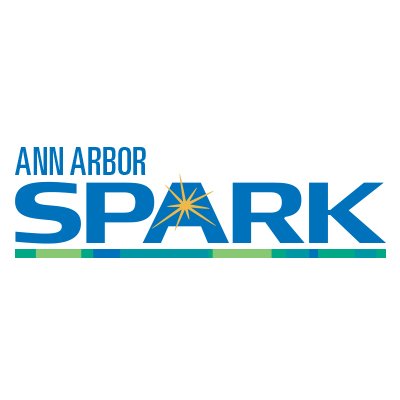AA Spark/Culturebie: In Tough Times, Company Culture Makes the Difference

Special thanks to Jasmit Kaur, CEO and co-founder of Culturebie for sharing this article. An Ann Arbor-based HR analytics company, Culturebie provides a web-based data analytics platform that helps organizations understand their people and improve their culture. You can also check out Jasmit’s Tech Talk where she uncovers the Three Myths of People Analytics. Special thanks to Elaine Ezekiel, director of marketing at Atomic Object for collaborating on this article.

Featured Company: Atomic Object
What gives companies the fuel to thrive during tough times? Especially as the world is still reeling from a pandemic and is witnessing a war with the potential for significant escalation.
It’s culture. A company’s culture defines the values, beliefs, and assumptions that guide actions. Having this clarity and a common ground gives people feelings of belonging, security, and purpose.
WHEN CULTURE IS VISIBLE IN ACTIONS
In April 2020, during the early days of the pandemic, the custom software company Atomic Object received a $1.4 million loan from the Small Business Administration’s Paycheck Protection Program. Then in May, they returned it.
Co-CEO Shawn Crowley describes what happened during the month in between: “We realized that even though there was a lot of uncertainty, we could survive without the loan. It’s the Paycheck Protection Program — not the Profit Protection Program.” Instead of using a loan they initially thought they needed, they made payroll by limiting profit distributions to shareholders. Shareholders, who are also workers at the 100% employee-owned company, agreed with the plan.
That story demonstrates just how much Atomic Object’s values are a deliberate part of its culture, and not just a corporate poster hanging on office walls. In fact, the anecdote expresses several of the company’s six values:
- Give a Sh*t (A government loan should go where it’s most needed.)
- Think Long Term (You build trust by doing the right thing.)
- Own It (They communicated this decision with the company and explained the rationale.)
- Share the Pain (COVID caused more pain for other small businesses.)
- Teach and Learn (The CEOs quickly learned about the process of applying for the loan and shared what they learned with company stakeholders.)
- Act Transparently (They published this story for external transparency on their website.)
Since its founding in 2001, Atomic Object has taken an intentional approach to culture, focused on personal accountability and trust. It starts at the top, but it’s expressed across the company. This has allowed Atomic to expand into three offices in Grand Rapids, Ann Arbor, and Chicago while maintaining its cultural core.
IT SHOWS IN THE GRASSROOTS
For example, the managing partners run a “Welcome Weekend” every year for new Atoms (the company’s term for employees). At this overnight event held at a mountain resort, participants get to know one another, hear about the company’s history, discuss shared goals, and play board games together. Brittany Hunter, managing partner, says the welcome weekend was designed with the goal of providing culture onboarding. Director of Marketing Elaine Ezekiel, says, “It’s cool that our leaders take a weekend of their time to get to know the most junior members of our company in a relaxed social setting. This in turn helps new employees adapt more quickly to our work environment.”

But it’s not just the company’s leaders who support the culture. Atoms Jesse Hill and Kimberly Crawford designed a peer recognition program focused on Atomic’s six values. “We wanted to create a recognition program that exemplifies our company values. By doing this, we build concrete stories that can turn into artifacts for all employees — now and in the future,” says Kimberly. Playing further on the company’s name, they created awards called Protons and Neutrons. Protons are earned through peers nominating an employee for demonstrating Atomic values; Neutrons are given by managers when Atoms meet major milestones. Awardees are presented with a certificate and a weighty, custom-designed coin during company meetings. Since the program launched, more than 250 awards have been made. Crawford herself has received a number of Proton and Neutron recognitions.
There are many other indicators of Atomic’s attention to a culture that honors all stakeholders. During the pandemic, Atomic had employees’ ergonomic office furniture — and even office plants — delivered to their homes. (That Atoms wanted a conducive home office environment emerged in an employee survey.) A standing “pair lunch” program covers the cost of a meal at a local restaurant for any two employees to socialize about anything other than project work. Since 2018, Atomic has been a Certified B Corporation, joining the movement of companies using business as a force for good.
CULTURE IS WHAT CULTURE DOES
So, does emphasizing culture — even to the point of returning $1.4 million in cash — pay off?
All evidence suggests that it does. With an average tenure of 5.3 years, the company has a very high employee retention rate compared to the rest of the software industry. This number is skewed lower due to the many Atoms hired through the accelerator program, which began taking on annual cohorts six years ago. In the spring 2019 employee poll, employee engagement was in the 98th percentile. In 2017, Atomic Object was recognized among the top places to work in Michigan and was cited for providing Ann Arbor’s best employee benefits in 2022. Recently, the company was also featured in the best places to work in Chicago.
And, all this while turning a profit every year since inception. Atomic Object has grown its business even during economic downturns.


























